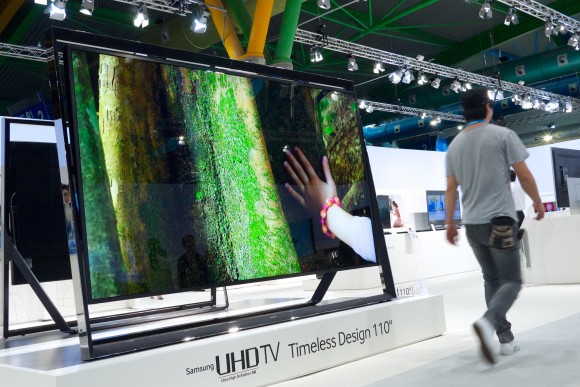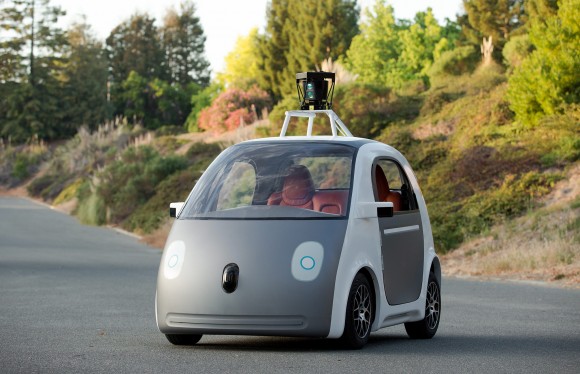Originally published at ANewDomain.net:
It occurs to me, while following announcements of new gadgets coming out this week at CES 2015 in Las Vegas, that new technologies fall into different spectrums of desire. From a consumerism standpoint, new tech falls into four discrete categories (assuming one can afford them):
- Love: Products that, either consciously or unconsciously, you’ve always wanted and that you fall in love with the second you see them. For me, the musical equivalent is the Ramones: I loved them the first time I heard them. The iPod was like that. As soon as a friend explained that you could put 10,000 songs on that one tiny device, I was in, no further sales pitch required.
- Like: Stuff you don’t immediately care about, but come to desire after you learn more about it, whether by watching other people use them or learning more about them some other way. Musical equivalent: the Sex Pistols. First time I spun the disc, they sounded like an unholy racket … though I sensed something deeper, wittier and even smarter under all that noise. Twenty listens later, I was a fan. When tablets first came out, I didn’t grasp the appeal of a screen larger than a phone but smaller than a laptop — that is on all the time. Watching friends use theirs brought me around. For others, it was advertising.
- Dislike: Things that you personally dislike, but have to get in order to participate in society. I feel that way about The New Yorker magazine and social networks like Twitter and Facebook — I don’t care for them at all, yet I buy in. Mostly in order to avoid feeling disconnected from my friends and colleagues.
- Goods you won’t buy. No matter what.
So lets look at some promising goods CES is full of this year, and see what spectrum of desire they fall under.
4K Televisions
These are TVs with higher resolution than the standard 1,080-pixel wide model that’s probably in your living room right now. They’ve been around for a few years, but the price points (roughly $7,800 in 2012) have been way too high for the average American. Now that 4K televisions are being sold for under $1,000, and are actually approaching the $450 average price of a standard flat screen, we are being told that 4K is about to become the new standard.

That’s probably true. Streaming content providers like Netflix are teaming up with manufacturers to make it so, in the words of Star Trek’s Jean-Luc Picard, but I suspect that most Americans currently categorize the purchase of a 4K television somewhere between categories two and three, between “maybe” and “only if they make me.”
Mainly, this is because most human beings’ eyes can’t tell the difference between their current flat screen, which really looks damned good if you think about what television used to look like, and the newfangled ones. Inertia rules: why replace a perfectly good TV?
Well, because they’ll make us. For instance: bye-bye Betamax, hello VHS.
Nevertheless, 4K purchases will increase in the next couple of years as the old flat screens are discontinued and dismissed by appliance store salesman as obsolete, not because of pressing demand by viewers for higher resolution, but because the industry is moving that way. You’ll love it soon, I bet.
Self-Driving Cars
This year’s CES is showcasing the early stages of driverless cars in the form of vehicles that park themselves and then come back to you all by their lonesome. This happens as though delivered by an invisible valet with apps that unlock the door, start the engine and adjust the internal temperatures so that everything is just perfect before you get inside.
Hmm.
Polls show that Americans don’t really know how to feel about driverless transportation technology. They think they’re cool, but also disquieting. Some understand the efficiency and safety advantages, such as the fact that a highway could hold two or three times as many cars at rush hour while traveling at higher rates of speed, and that a computer can react more quickly than a human being distracted by a text message.

For geeks, driverless technology clearly fits into category one, a must-have. For the rest of us, there will probably be buy-in — but not before a lot of education. Driverless cars don’t mark the rise of Skynet, but there’s still a creep factor in surrendering control of the road to a device you barely understand. (If you don’t believe me, take the AirTrain into JFK airport. No conductor. I’m not a fan.)
And don’t get me started on the possibility that hackers could tap into your auto’s controls and drive you off a cliff.
I’m 95 percent sure driverless cars will become a thing. But there’s going to be a long psychological adjustment period.
Internet of Things and All Those Little Gadgets
Energy Management appliances and devices that use sensors, algorithms and predictive technology to save energy on your refrigerators and home cooling and heating, on the other hand, will likely enjoy intrinsic, immediate appeal to many, if not most consumers. Who doesn’t like to pay less?
Until now the sales of devices like the high-tech thermostat Nest have been constrained by their relatively high cost. As prices become more affordable and accessible, they will become standard in many homes.
Robotics, wearables and virtual reality products, on the other hand, will divide consumers into each of my four categories of consumerist desire: love, like, dislike and hate.
Google Glass and the Apple Watch anticipated for later this year are, depending on who you are, either the coolest or derpiest things ever. People either want to be seen everywhere with them or not caught dead near them. Some people even want to ban them. I believe that these will be divisive for the foreseeable future, until the marketplace and popular culture arrives at some sort of consensus over whether these are must-haves or must-avoids.
Me? I’m all in when it comes to 3D printing. How about you?

1 Comment.
First time I heard about the remote control home stuff, my immediate thought was, ‘If I can control it remotely, so can someone else.’ I feel very old for 26 anymore…I generally have no use for new things even when I don’t see them as dangerous. I just don’t think ordinary daily life is so inconvenient as others seem to.